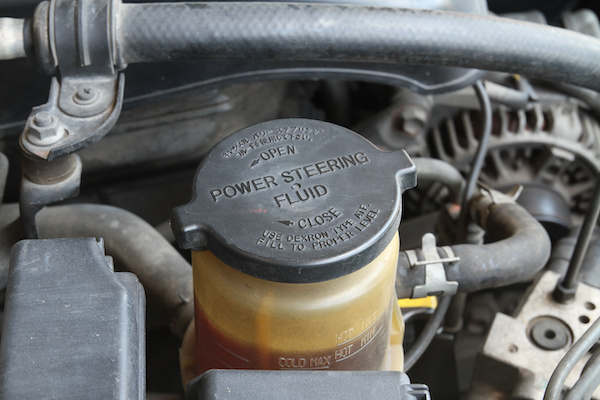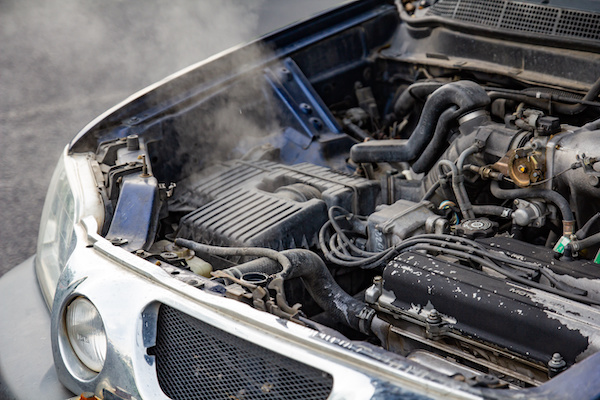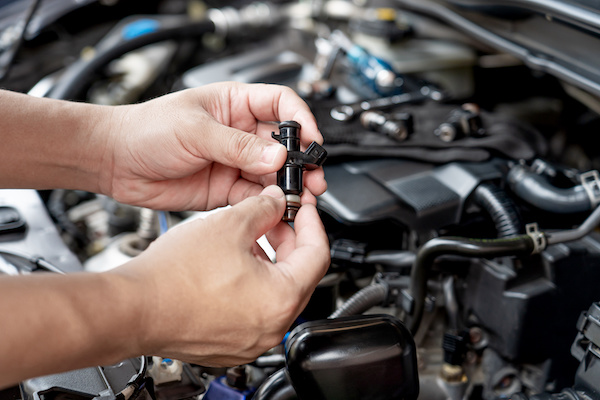Posted on 2/27/2023

Every car owner has that solid connection with their vehicle making it easy to understand like the back of their hand. This familiarity helps you notice when something is wrong with your car. A common problem is your car shaking when you apply the brakes. The vibrating or shaking is also known as a brake shudder or judder. A brake shudder or vibration runs through the steering wheel and brake pedal when braking. While this should not cause panic, it usually indicates issues with your brake pads, rotors, or failing calipers. To understand the shudder, you need to identify its source. Shaking felt through the steering wheel indicate problems with the front rotors, while rear rotor issues cause vibrations on the brake pad. However, if you are unfamiliar with such technical terms, here are signs and indicators to help you understand why your car vibrates when you brake. Causes of Brake Shudder or Car Vibration When You Brake Worn Brake Pads Over time your brake pads w ... read more
Posted on 1/31/2023

Have you ever wondered why your steering wheel is so easy to turn? Well, the reason is your power steering system, which functions with the help of hydraulics. Every single turn and little correction you make on the road is done with the assistance of power steering. Therefore it has to be well-kept and maintained. Changing Power Steering Fluid Keeping in mind that power steering fluid procedures are performed rarely, doesn't mean that it has to be ignored. A flush and refill of the hydraulic oil is done, and the results are noticeable right away. Despite its simplicity and importance, it is commonly not included in your auto repairs and maintenance, so be sure to remind them from time to time. Our advice is to at least get a thorough inspection of the system once a year Symptoms To Look Out For All signs are very noticeable because they can be felt or heard while driving. We will give you three of the most obvious ones and what they mean. Stiff Steering Wheel ... read more
Posted on 12/23/2022

Most of your car's external components may add to the aesthetic appeal but still play a critical role in your vehicle's operation, like the windshield wipers. They help sustain visibility, a vital requirement in driving. Wiper Blades Rain, snow, and dust usually decrease your windshield's clarity on the road. But your wiper blades help keep your windshield clear for safe driving. However, with time and use, the blades wear out and require replacement. When Should Wiper Blades be Replaced? A general rule is to replace your wiper blades every six to 12 months, depending on how often you drive and where you live. The replacement frequency also depends on the type of blades. Also, most car experts may recommend changing your wipers on a schedule. But like every other vehicle component, regular maintenance is an excellent way to keep track of your wiper blade condition. Signs that your Wiper Blades Need Replacement While you should change wiper blades every six to 12 mon ... read more
Posted on 11/29/2022

Engine overheating is a common problem for people who use gas cars. Apart from the obvious discomfort, overheating can cause damage to the engine and other critical components. Overheating occurs when the heat generated by the motor exceeds the normal operating temperature, or the cooling system fails. How to Detect Overheating If your car overheats while you are driving, you will: • see an ‘H' warning on the temperature gauge • feel a strange smell coming from the engine • or see steam or smoke coming from under the hood A Problem in The Cooling System Engine overheating is caused by a malfunctioning cooling system. The cooling system regulates engine temperature by circulating a coolant through the engine and releases excess heat through the radiator. The most common causes of overheating include: Insufficient Coolant Your engine should have a 50/50 mix of coolant and water. The engine can overheat if there is too litt ... read more
Posted on 10/31/2022

Fuel injectors are your car's small but significant engines. The fuel injectors are responsible for delivering the right amount of fuel to the engine. A fuel injector typically delivers liquid fuel under pressure into the combustion chamber of an internal combustion engine. Fuel injectors are often used in conjunction with a fuel pump to provide fuel to the engine. Fuel injectors are usually electrically operated valves. They are typically opened by an electric solenoid or by a vacuum produced by the engine's intake manifold, and they may be closed either mechanically or electronically. Importance of Fuel Injector Fuel injectors are very important as they will save you a lot of money and ensure the smooth operation of your vehicle at all times. If they are not functioning correctly and are clogged, the machine will not be able to produce enough power, which will lead to a number of problems. That's why it is necessary to find out if there is a problem with the fuel injec ... read more